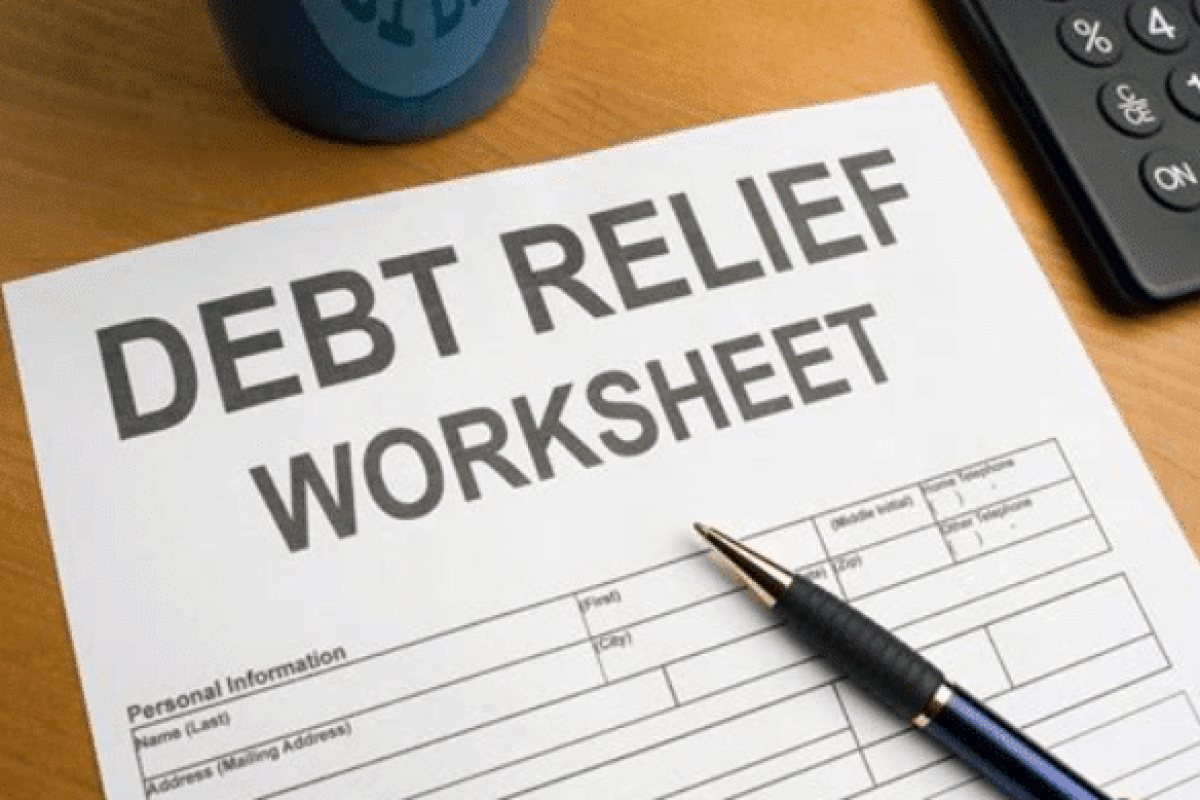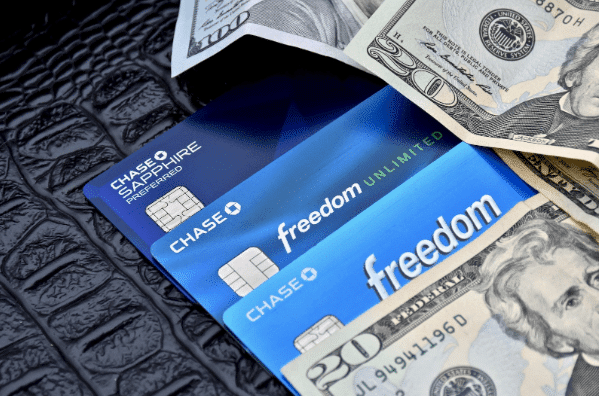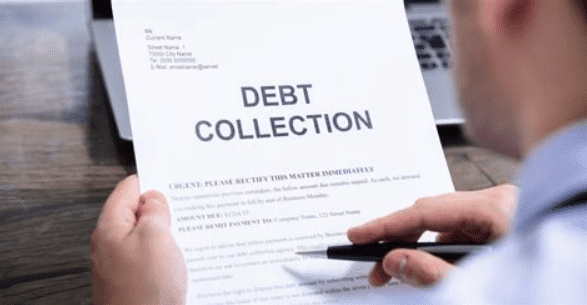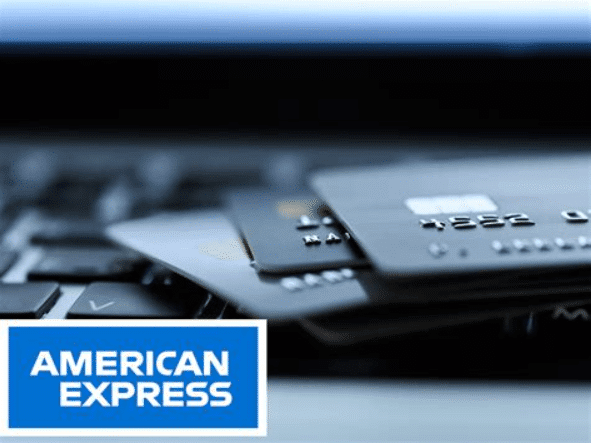Utilize ZumaZip.com to efficiently address a debt lawsuit initiated by Capital One, enabling a prompt response within a mere 15 minutes and enhancing your prospects of prevailing in legal proceedings.
Drawing parallels to the timeless biblical narrative of David and Goliath underscores the formidable challenge individuals face when confronted with litigation by a corporate giant such as Capital One. Despite initial apprehensions stemming from this perceived power imbalance, it is crucial to recognize that victory is attainable.
Recall the inspiring triumph of David over Goliath as a testament to the potential for individuals to overcome seemingly insurmountable odds.
Let this principle guide you as you navigate your legal dispute with Capital One. Below are essential insights to consider if you find yourself facing a lawsuit initiated by Capital One.
Firstly, it is imperative to never disregard a lawsuit served upon you. Failure to respond can result in Capital One obtaining a default judgment, potentially leading to further complications such as wage garnishment or asset freezing.
Secondly, responding to the lawsuit significantly increases the likelihood of a favorable outcome, potentially enabling you to avoid financial obligations. Capital One’s vast size can sometimes work against it, as evidenced by challenges in providing sufficient documentation or appearing in court. By timely submitting an Answer, individuals stand a chance of prevailing in such situations.
In the subsequent discussion, we will delve into fundamental aspects of Capital One’s operations and elucidate the straightforward process of responding to a debt collection lawsuit filed by the company, even for those unfamiliar with legal proceedings.
Upon completion of this article, should you find yourself seeking further guidance on combatting Capital One’s actions, please do not hesitate to reach out to us at ZumaZip. Our primary objective at ZumaZip is to empower consumers with the necessary resources to challenge credit card companies such as Capital One, which may attempt to exploit their cardholders.
ZumaZip makes it easy to win a debt collection lawsuit.
Capital One debt collection practices
Capital One employs assertive tactics in its debt collection procedures. Should you discover that your account has been transferred to collections by Capital One, anticipate persistent phone calls, correspondence, and continual efforts to recover the debt, potentially resulting in harassment. Furthermore, Capital One routinely reports any delinquent payments and outstanding debts to the three prominent credit reporting agencies, consequently exerting a lasting influence on your credit score.
Example: Julio Lugo can provide firsthand insight into the lengths to which Capital One will go to pursue debt collection. In 2018, he faced a lawsuit from Capital One. As a resident of New York and an employee at Mount Sinai Hospital in Manhattan, Lugo experienced the chaotic impact of the pandemic firsthand. Like numerous healthcare professionals, he was thrust into demanding 16-hour workdays, losing track of time amidst the relentless battle against COVID-19.
Nevertheless, despite the extraordinary circumstances, Capital One proceeded to garnish a significant portion of Julio Lugo’s wages at the peak of the pandemic, exacerbating the challenges faced by him and his family.
It’s important to remember that there are avenues available if you find yourself indebted to Capital One. If you possess the financial capability to settle the outstanding debt, you might explore the option of requesting a goodwill deletion from Capital One to expunge detrimental information from your credit report. Articulate the reasons behind any late payments and inquire whether they would consider a goodwill deletion. Capital One can be reached at 1-800-955-7070.
Just how big Is Capital One?
If the commercial tagline “What’s in your wallet?” hasn’t crossed your path, you’ve likely been out of the loop for the past two decades. It could be humorously altered to “What’s in your wallet? A lawsuit!”
Capital One emerged in 1994 through the consolidation of various financial entities, primarily focusing on credit cards—a notably daring strategy at the time. Since its inception, Capital One has inundated the market with advertising campaigns promoting its credit card services. Presently, its parent company, Capital One Financial Corporation, ranks among the top ten largest banks in the United States.
A distinguishing feature of Capital One lies in its approach to defaulted accounts. While many credit card companies typically offload such accounts to specialized debt collection agencies, Capital One occasionally opts to retain these accounts and pursue legal action independently. Consequently, individuals with outstanding balances on their Capital One credit cards, lingering unpaid for a few months, may find themselves facing direct legal action from the company.
ZumaZip makes it simple to respond the right way.
What types of credit cards does Capital One offer?
Capital One is a giant in the credit card arena. They offer credit cards in the following categories:
- Secured credit cards–whether you are just getting started on building your credit score or you are attempting to recover from a battle with debt, a secured credit card can help you start to rebuild a healthy credit profile. You put down a security deposit which is held by Capital One. Once you have established paying your credit card bill on time, Capital One will raise your credit limit above your secured deposit.
- Cashback credit cards–qualifying purchases help you earn cash back on select spending categories.
- Travel reward credit cards offer various travel rewards and are ideal for those who travel extensively.
- Business credit cards are useful for tracking employee spending and help keep business and personal spending separate. You might also benefit from the often higher limits on business credit cards.
- Credit cards with no annual fee–remember, if the card has a substantially higher interest rate, you may not be saving money by having a card without an annual fee.
- Store credit cards–Capital One backs numerous store credit cards.
For a full list of credit cards offered by Capital One, visit Capital One’s credit card page.
How can I beat a Goliath like Capital One in court?
The initial step towards prevailing against Capital One entails submitting an Answer to their Complaint. While this may seem daunting, especially for individuals unfamiliar with legal proceedings, ZumaZip offers invaluable assistance akin to a personal “slingshot” in combating the formidable entity that is Capital One.
With ZumaZip’s support, crafting and filing your Answer against Capital One in court becomes a straightforward process. Simply visit ZumaZip.com to initiate proceedings swiftly.
However, it’s essential to adhere to a few fundamental guidelines when drafting your Answer:
- Address each numbered allegation outlined in the Complaint.
- Incorporate your Affirmative Defenses.
- Ensure timely filing of your Answer to meet court deadlines.
Step 1: Respond to each allegation listed in the Complaint
Upon receiving an Answer to a Complaint, the court anticipates a clear indication of whether each numbered paragraph within the Complaint is “admitted” or “denied” by the responding party. Each factual assertion in the Complaint is assigned a number for reference. Therefore, akin to any ordinary dispute, you must affirm the veracity (“admit”) or dispute the accuracy (“deny”) of each allegation.
Moreover, in instances where uncertainty exists regarding the truthfulness of an assertion, it is crucial to either formally “deny” the allegation or explicitly state “I don’t know.” This ensures transparency and accuracy in the legal proceedings.
Example: Tanya encountered a legal challenge when Capital One sued her in her home state of Arizona in 2022, alleging unpaid credit card debts dating back to 2014, a period during which she had lost her job. Initially perplexed by the lawsuit, as she had no recollection of the debt owed to Capital One, Tanya scrutinized the Complaint and discovered discrepancies in the claims made against her.
Utilizing ZumaZip, Tanya drafted and submitted her Answer, refuting all allegations presented in the Complaint. Subsequently, after a few months, the court informed Tanya that Capital One had opted to withdraw the case. This decision was likely influenced by the expiration of the statute of limitations pertaining to the debt in Arizona.
Step 2: Include your Affirmative Defenses
Again, just like in an argument with someone, you not only refute the facts, but you also can state the reasons why the person who is demanding something should not get it. In terms of your lawsuit with Capital One, there may be good reasons why Capital One’s lawsuit should be dismissed – perhaps you paid off the balance, or it is not your credit card, or Capital One filed suit beyond the applicable statute of limitations. If you have reasons why Capital One is wrong to sue you, then you should say so.
Example: When David was sued by Capital One for credit card debt, he was frustrated because he had never even applied for a credit card with the company. He was even more confused when he found out that he was being sued in New York, because he hadn’t lived there for over 9 years. David filled out ZumaZip’s Answer document form, including his affirmative defenses section where he stated that the debt was not his and that he was being sued in a state in which he did not live. Capital One quickly dismissed the case, realizing that they had contacted the wrong person.
Step 3: File Your Answer On Time.
It’s crucial to be aware that the timeframe for responding to a debt lawsuit varies, typically ranging from 14 to 35 days depending on your state of residence. Ensuring timely submission of your Answer to the court before the specified deadline is imperative. Additionally, remember to furnish a copy of your Answer to the attorney representing the plaintiff, as listed on the Complaint.
Capital One often capitalizes on the likelihood that many individuals will neglect to respond to lawsuits filed against them. Consequently, the credit card issuer may obtain a default judgment, granting them the authority to garnish wages or impose liens on specific assets. Such actions can impede your ability to sell property, such as a home, boat, or car, until the judgment is satisfied.
Avoid allowing Capital One, akin to Goliath in stature, to secure victory by default. Procrastination only heightens the risk of financial repercussions. If confronted with a lawsuit from Capital One, explore your available options promptly by visiting Zumazip.com.
ZumaZip can help you file an Answer in all 50 states.
Read your Capital One credit card agreement
Unfortunately, most consumers don’t take the time to read the full credit card agreement before activating a new credit card. Don’t worry–you can find most credit card agreements on the Consumer Financial Protection Bureau’s (CFPB) website.
Failing to read a credit card agreement can cost you a significant sum of money. Specifically, make sure you pay attention to:
- Account fees and charges
- Arbitration clause
- Your rights as a consumer
- What can happen to trigger a default
- What you should expect if your account goes into default
Arbitration clauses serve as a protective measure employed by lenders to shield themselves from legal challenges in court regarding their fees, debt collection practices, and other policies, effectively curtailing consumers’ avenues for legal recourse. Particularly notorious for their limitations on potential consumer relief, especially in class action lawsuits, arbitration clauses often confine consumers to small claims court if they seek redress against a credit card company.
However, when navigating dealings with Capital One, it’s essential to note the absence of such a clause in their credit card agreements. Notably, in 2009, Capital One, alongside several other major card issuers, agreed to suspend its arbitration clause until 2013 as part of a settlement of anti-trust claims. Unlike its counterparts, Capital One opted not to reinstate the arbitration clause post-2013.
Should Capital One engage in actions beyond those outlined in its credit card agreement, consumers retain the right to take appropriate action. While the prospect of a Capital One credit card lawsuit may initially appear daunting, it’s crucial to recognize that Capital One doesn’t uniformly prevail in such suits, despite its tendency to litigate against individuals who default on their credit card payments.
You can beat Capital One in court
Regardless of whether you indeed owe Capital One money, ignoring a lawsuit is not a prudent course of action. Instead, it’s crucial to actively engage with the lawsuit by responding. This proactive approach can lead to favorable outcomes, such as the dismissal of the case due to Capital One’s inability to substantiate its claims, or alternatively, facilitate negotiation towards a mutually agreeable resolution.
Addressing the lawsuit promptly, with the assistance of ZumaZip, can significantly mitigate potential repercussions such as wage garnishment, credit rating damage, and other ensuing difficulties. Refusing to be intimidated by Capital One’s actions, it’s imperative to assert your rights and take a decisive stand against undue pressure. Initiate the process today and assertively combat any unwarranted claims.
What is ZumaZip?
ZumaZip is a convenient solution designed to streamline your response to a debt collection lawsuit. Here’s a breakdown of what you can expect when you use ZumaZip:
Firstly, you’ll access our user-friendly web application, which guides you through the process step by step. You’ll be prompted to answer a series of questions related to your specific situation. Once you’ve completed the questionnaire, you have the option to either print out the finalized forms and mail them to the appropriate courts yourself, or you can opt to utilize ZumaZip’s services to file them on your behalf. Additionally, if you choose this option, an attorney will review your document for added peace of mind.
If you’re seeking guidance on how to effectively respond to a debt collection lawsuit, ZumaZip can provide the assistance you need. Feel free to explore our FAQs for more information on what ZumaZip has to offer.
What if I haven’t been sued yet?
If you’ve only received a collections notice, but not a lawsuit, the best way to respond is with a Debt Validation Letter. When a debt collector contacts you in any way, whether it’s by phone or mail, you can respond by formally requesting a debt validation with a Debt Validation Letter . This letter notifies the collector that you dispute the debt and forces them to provide proof you owe the debt. They can’t call you or continue collecting until they provide validation of the debt. This flowchart shows how you can use a Debt Validation Letter to win.
Get started with a Debt Validation Letter here.
How to Answer a Summons for debt collection in all 50 states
Here’s a list of guides on how to respond to a debt collection lawsuit in each state:
- Alabama
- Alaska
- Arizona
- Arkansas
- California
- Colorado
- Connecticut
- Delaware
- Florida
- Georgia
- Hawaii
- Idaho
- Illinois
- Indiana
- Iowa
- Kansas
- Kentucky
- Louisiana
- Maine
- Maryland
- Massachusetts
- Michigan
- Minnesota
- Mississippi
- Missouri
- Montana
- Nebraska
- Nevada
- New Hampshire
- New Jersey
- New Mexico
- New York
- North Carolina
- North Dakota
- Ohio
- Oklahoma
- Oregon
- Pennsylvania
- Rhode Island
- South Carolina
- South Dakota
- Tennessee
- Texas
- Utah
- Vermont; Vermont (Small Claims court)
- Virginia
- Washington
- West Virginia
- Wisconsin
- Wyoming
Guides on how to beat every debt collector
Hey there! Facing off against a debt collector can feel like a daunting challenge, but fear not! We’re here to help you navigate through it all with our handy guides designed to assist you in beating every debt collector you encounter. Whether you’re facing a new lawsuit or dealing with a persistent collector, we’ve got your back. Stay positive, stay informed, and let’s tackle this together!
- Absolute Resolutions Investments LLC
- Accredited Collection Services
- Alliance One
- Amcol Clmbia
- American Recovery Service
- Asset Acceptance LLC
- Asset Recovery Solutions
- Associated Credit Services
- Autovest LLC
- Cach LLC
- Cavalry SPV I LLC
- Cerastes LLC
- Colinfobur
- Covington Credit
- Crown Asset Management
- CTC Debt Collector
- Cypress Financial Recoveries
- Delanor Kemper & Associates
- Eagle Loan of Ohio
- Educap
- Estate Information Services
- FIA Card Services
- Forster & Garbus
- Freshview Solutions
- Fulton Friedman & Gullace LLP
- Harvest Credit Management
- Howard Lee Schiff
- Hudson & Keyse LLC
- Integras Capital Recovery LLC
- Javitch Block
- Jefferson Capital Systems LLC
- LVNV Funding
- Mannbracken
- Mariner Finance
- Medicredit
- Michael J Adams PC
- Michael J Scott
- Midland Funding LLC
- Mullooly, Jeffrey, Rooney & Flynn
- Mountain Land Collections
- MRS Associates
- National Collegiate Trust
- Nationstar Foreclosure
- Northstar Capital Acquisition
- NCEP LLC
- NRC Collection Agency
- OneMain Financial
- Palisades Collection LLC
- Pallida LLC
- Paragon Revenue Group
- Pinnacle Collections Agency
- PMAB LLC
- Portfolio Recovery Associates
- Provest Law
- PYOD LLC
- Reunion Student Loan Finance Corporation
- Revenue Group
- Regents and Associates
- RSIEH
- Salander Enterprises LLC
- Second Round Sub LLC
- Security Credit Services
- Sherman Financial Group
- Suttell and Hammer
- T-Mobile
- Transworld Systems
- Tulsa Teachers Credit Union
- UCB Collection
- Velo Law Office
- Velocity Investments
- Waypoint Resource Group
- Weinberg and Associates
- Wolpoff & Abramson
Settle your medical debt
Having a health challenge is stressful, but dealing medical debt on top of it is overwhelming. Here are some resources on how to manage medical debt.
- Am I Responsible for My Spouse’s Medical Debt?
- Do I Need a Lawyer for Medical Bills?
- Do I Need a Lawyer to Fight Medical Bill Debt?
- Does Bankruptcy Clear Medical Debt?
- How Much Do Collection Agencies Pay for Medical Debt?
- How to Find Medical Debt Forgiveness Programs
- Is There a Statute of Limitations on Medical Bills?
- Medical Debt Statute of Limitations by State
- Summoned to Court for Medical Bills — What Do I Do?
- Summoned to Court for Medical Bills? What to Do Next
Stop calls from Debt Collectors
Do you keep getting calls from an unknown number, only to realize that it’s a debt collector on the other line? If you’ve been called by any of the following numbers, chances are you have collectors coming after you, and we’ll tell you how to stop them.
- 800-390-7584
- 800-289-8004
- 800-955-6600
- 877-366-0169
- 877-591-0747
- 800-278-2420
- 800-604-0064
- 800-846-6406
- 877-317-0948
- 888-899-4332
- 888-912-7925
- 202-367-9070
- 502-267-7522
Other wage garnishment resources
- Bank Account Garnishment and Liens in Texas
- Can I Stop Wage Garnishment?
- Can My Wife’s Bank Account Be Garnished for My Debt?
- Can Payday Loans Garnish Your Wages?
- Can pensions be garnished?
- Can Private Disability Payments Be Garnished?
- Can Social Security Disability Be Garnished?
- Can They Garnish Your Wages for Credit Card Debt?
- Can You Stop a Garnishment Once It Starts?
- Guide to Garnishment Limits by State
- How Can I Stop Wage Garnishments Immediately?
- How Long Before a Creditor Can Garnish Wages?
- How Long Does It Take to Get Garnished Wages Back?
- How to Fight a Wage Garnishment
- How to Prevent Wage Garnishment
- How to Stop a Garnishment
- How to Stop Social Security Wage Garnishment
- How to Stop Wage Garnishment — Everything You Need to Know
- New York Garnishment Laws – Overview
- Ohio Garnishment Laws — What They Say
- Wage Garnishment Lawyer
- What Is Wage Garnishment?
Guides on Arbitration
If the thought of going to court stresses you out, you’re not alone. Many Americans who are sued for credit card debt utilize a Motion to Compel Arbitration to push their case out of court and into arbitration.
Below are some resources on how to use an arbitration clause to your advantage and win a debt lawsuit.
- How Arbitration Works
- How to Find an Arbitration Clause in Your Credit Agreement
- How to Make a Motion to Compel Arbitration
- How to Make a Motion to Compel Arbitration in Florida
- How to Make a Motion to Compel Arbitration Without an Attorney
- How Credit Card Arbitration Works
- Motion to Compel Arbitration in California
- Sample Motion to Compel Arbitration
Federal Debt Collection Laws Can Protect You
Knowing your rights makes it easier to stand up for your rights. Below, we’ve compiled all our articles on federal debt collection laws that protect you from unfair practices.
- 15 USC 1692 Explained
- Does the Fair Credit Reporting Act Work in Florida?
- FDCPA Violations List
- How to File an FDCPA Complaint Against Your Debt Collector (Ultimate Guide)
- How to Make a Fair Debt Collection Practices Act Demand Letter
- How to Submit a Transunion Dispute
- How to Submit an Equifax Dispute
- How to Submit an Experian Dispute
- What Debt Collectors Cannot Do — FDCPA Explained
- What Does Account Information Disputed by Consumer Meets FCRA Requirements Mean?
- What does “meets FCRA requirements” mean?
- What does FCRA stand for?
- What is the Consumer Credit Protection Act
Resolve Your Debt with Your Creditor
Some creditors, banks, and lenders have an internal collections department. If they come after you for a debt, ZumaZip can still help you respond and resolve the debt. Here’s a list of guides on how to resolve debt with different creditors.
- American Express; American Express – Debt Collection
- Bank of America
- Barclay
- Best Buy Credit Card
- Capital One
- Chase
- Credit One Bank
- Old Navy Credit Card
- PayPal Synchrony Card
- Regional Finance
- Retailers National Bank
- Reunion Student Loan Finance Corporation
- SYNCB/PPEXTR
- Synchrony Bank
- Synchrony Walmart Card
- Target National Bank
- Webbank
- Wells Fargo
- Can I Pay My Original Creditor Instead of a Debt Collection Agency?
- Can I Settle a Debt with the Original Creditor?
Check the Status of Your Court Case
Don’t have time to go to your local courthouse to check the status of your case? We’ve created a guide on how to check the status of your case in every state, complete with online search tools and court directories.
- Alabama Court Case Search—Find Your Lawsuit
- Alaska Court Case Search — Find Your Lawsuit
- Arizona Court Case Search – Find Your Lawsuit
- Arkansas Court Case Search — Find Your Lawsuit
- California Court Case Search- Find Your Lawsuit
- Colorado Court Case Search — Find Your Lawsuit
- Connecticut Case Lookup — Find Your Court Case
- Delaware Court Case Search — Find Your Lawsuit
- Florida Court Case Search — Find Your Lawsuit
- Georgia Court Case Search — Find Your Lawsuit
- Hawaii Court Case Search — Find Your Lawsuit
- Idaho Court Case Search – Find Your Lawsuit
- Illinois Court Case Search — Find Your Lawsuit
- Indiana Court Case Search — Find Your Lawsuit
- Iowa Court Case Search — Find Your Lawsuit
- Kansas Court Case Search — Find Your Lawsuit
- Kentucky Court Case Search — Find Your Lawsuit
- Louisiana Court Case Search — Find Your Lawsuit
- Maine Court Case Search — Find Your Lawsuit
- Maryland Court Case Search — Find Your Lawsuit
- Massachusetts Court Case Search — Find Your Lawsuit
- Michigan Court Case Search — Find Your Lawsuit
- Minnesota Court Case Search — Find Your Lawsuit
- Mississippi Court Case Search — Find Your Lawsuit
- Missouri Court Case Search — Find Your Lawsuit
- Montana Court Case Search — Find Your Lawsuit
- Nebraska Court Case Search — Find Your Lawsuit
- Nevada Court Case Search — Find Your Lawsuit
- New Hampshire Court Case Search — Find Your Lawsuit
- New Jersey Court Case Search—Find Your Lawsuit
- New Mexico Court Case Search – Find Your Lawsuit
- New York Case Search — Find Your Lawsuit
- North Carolina Court Case Search — Find Your Lawsuit
- North Dakota Court Case Search — Find Your Lawsuit
- Ohio Court Case Search — Find Your Lawsuit
- Oklahoma Court Case Search — Find Your Lawsuit
- Oregon Court Case Search — Find Your Lawsuit
- Pennsylvania Court Case Search — Find Your Lawsuit
- Rhode Island Court Case Search — Find Your Lawsuit
- South Carolina Court Case Search — Find Your Lawsuit
- South Dakota Court Case Search — Find Your Lawsuit
- Tennessee Court Case Search — Find Your Lawsuit
- Texas Court Case Search — Find Your Lawsuit
- Utah Court Case Search — Find Your Lawsuit
- Vermont Court Case Search — Find Your Lawsuit
- Virginia Court Case Search — Find Your Lawsuit
- Washington Court Case Search — Find Your Lawsuit
- West Virginia Court Case Search — Find Your Lawsuit
- Wisconsin Court Case Search — Find Your Lawsuit
- Wyoming Court Case Search — Find Your Lawsuit



































